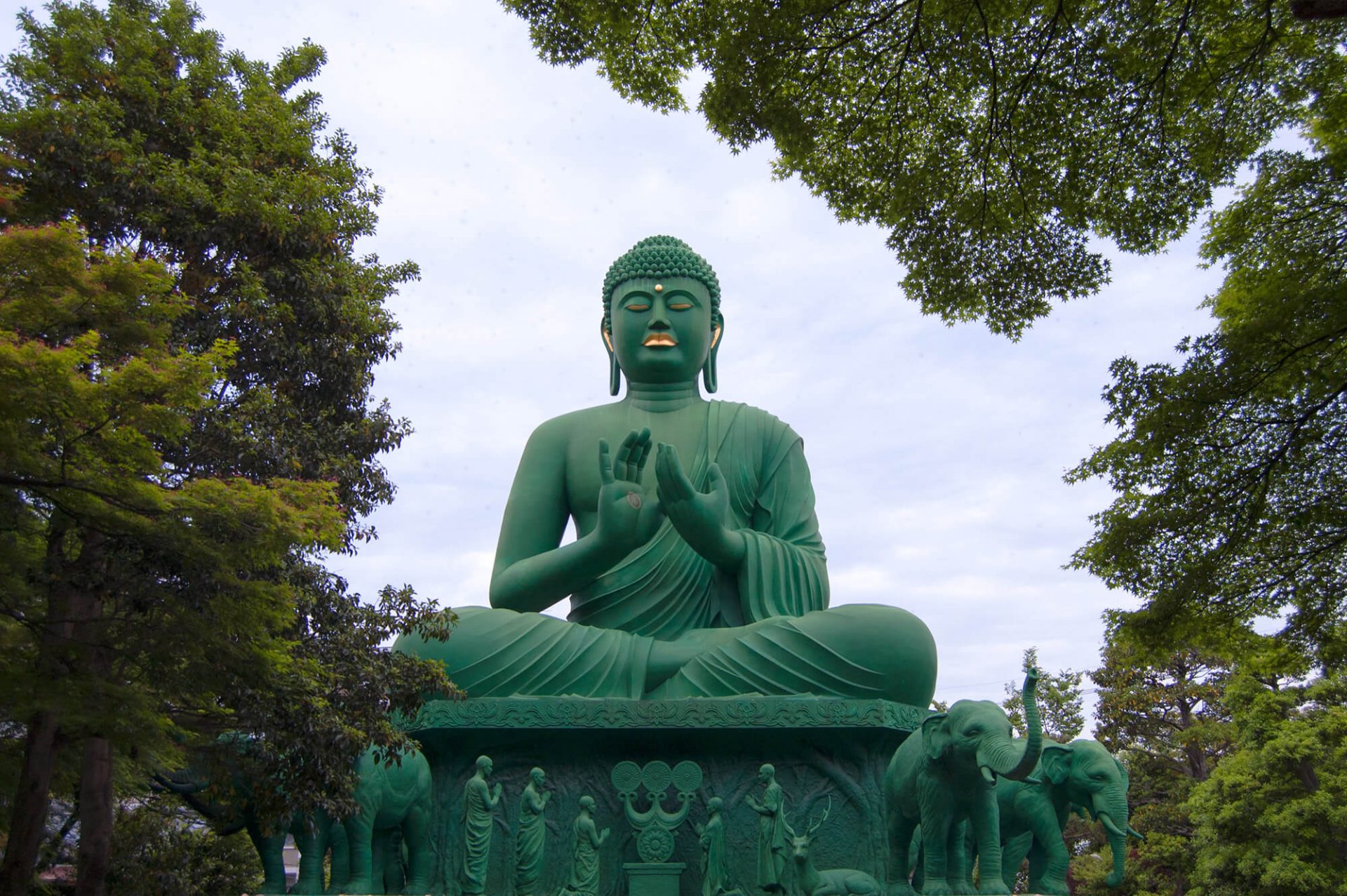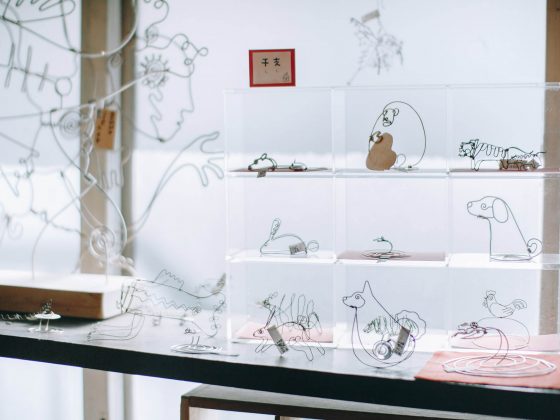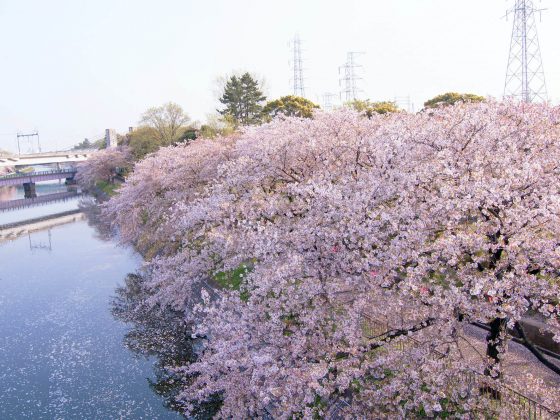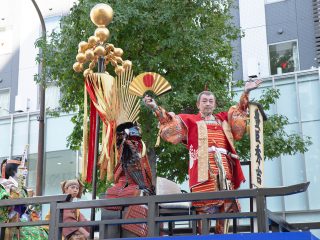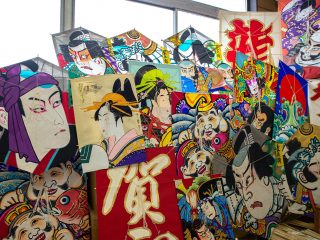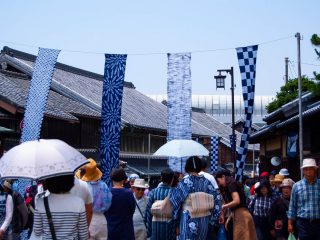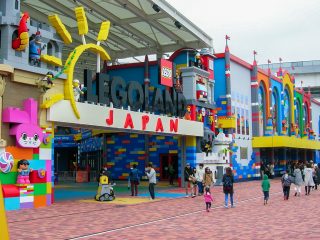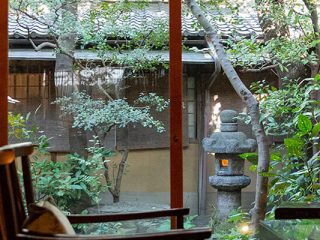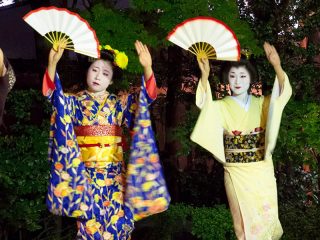Close to the Motoyama subway station (Nagoya) you will find this little temple hidden from the eyes of passersby. Despite being right in the middle of the city, the temple and its gardens are surrounded by the most peaceful atmosphere and tranquility. I would not have imagined that there would be such temple in the middle of the daily hustle and bustle.
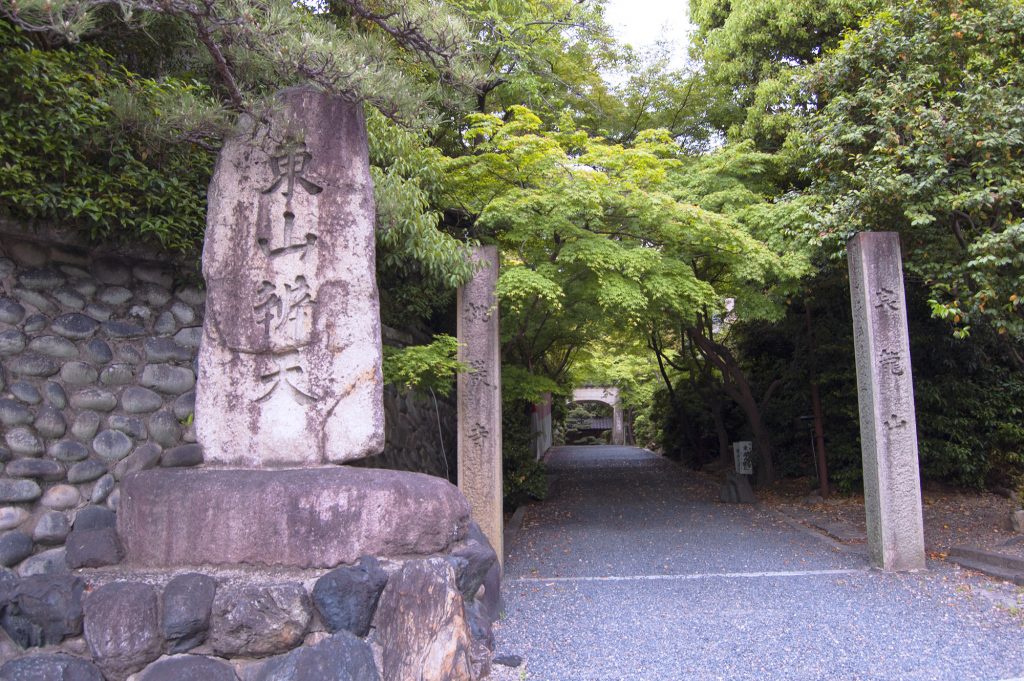
Inside, you will find an impressive 15-meter-high statue of the sitting Buddha, painted in a vivid green color, with gold decorations.
A brief history
Oda Nobuyuki (brother of Oda Nobunaga, great powerful samurai) had the Buddhist temple built in 1532, as a monument and burial to his father, Oda Nobuhide. But the temple was moved to its current location around 1714. Today it’s a temple in homage to the Goddess Saraswati (Hindu Goddess of music and learning).
Toganji, one of the temples of the Soto Zen sect of Japanese Buddhism, has many links with India since one of the high priests of the temple completed his studies of Buddhism there. The posthumous Buddhist name of Nobuhide gives its name to the temple.
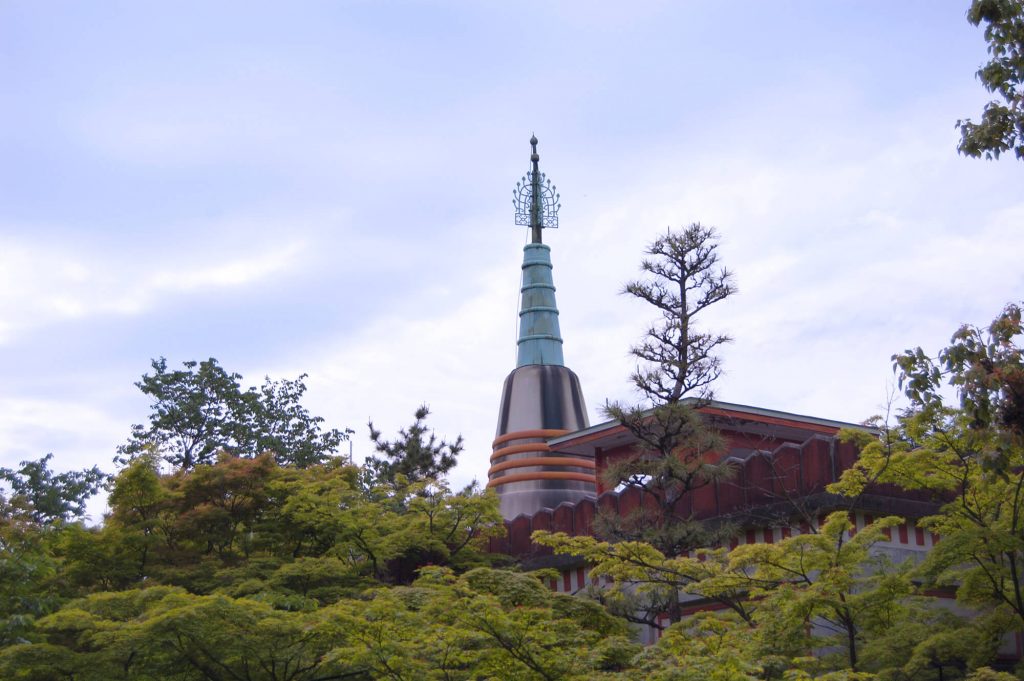
The Temple Surroundings
When you enter through the main doors of the temple there are 2 Chinese-style lion figures guarding the doors.
After passing the Chinese portal, there is a Japanese-style garden and a small bamboo forest. Also, there are marble tables and chairs installed near the bamboo forest. Depending on the season you can see the bamboo shoots coming out from under the ground.
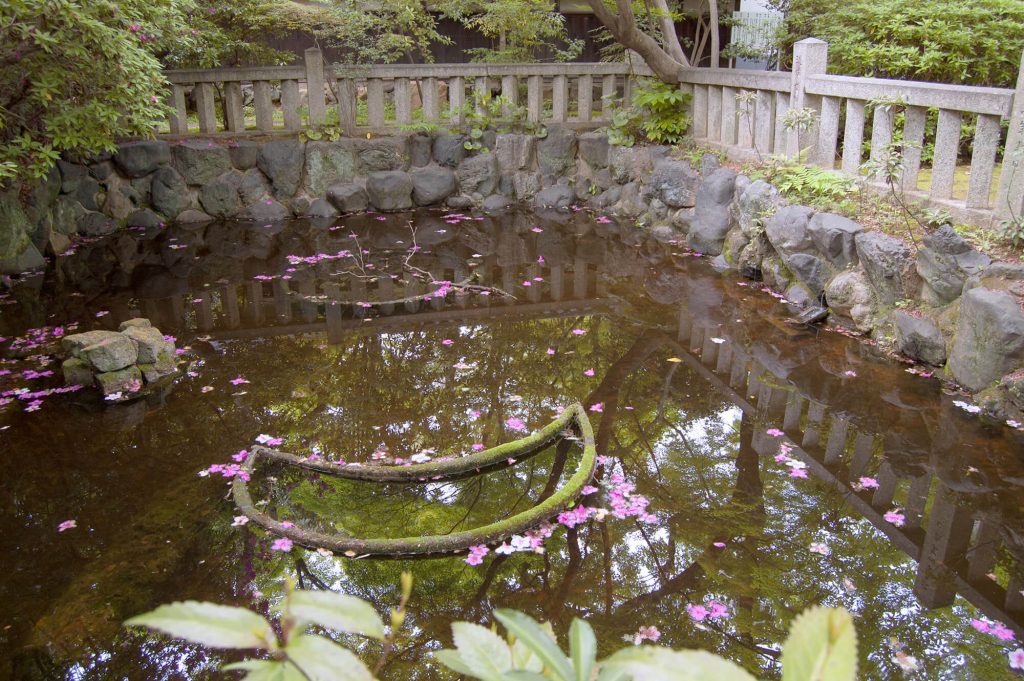
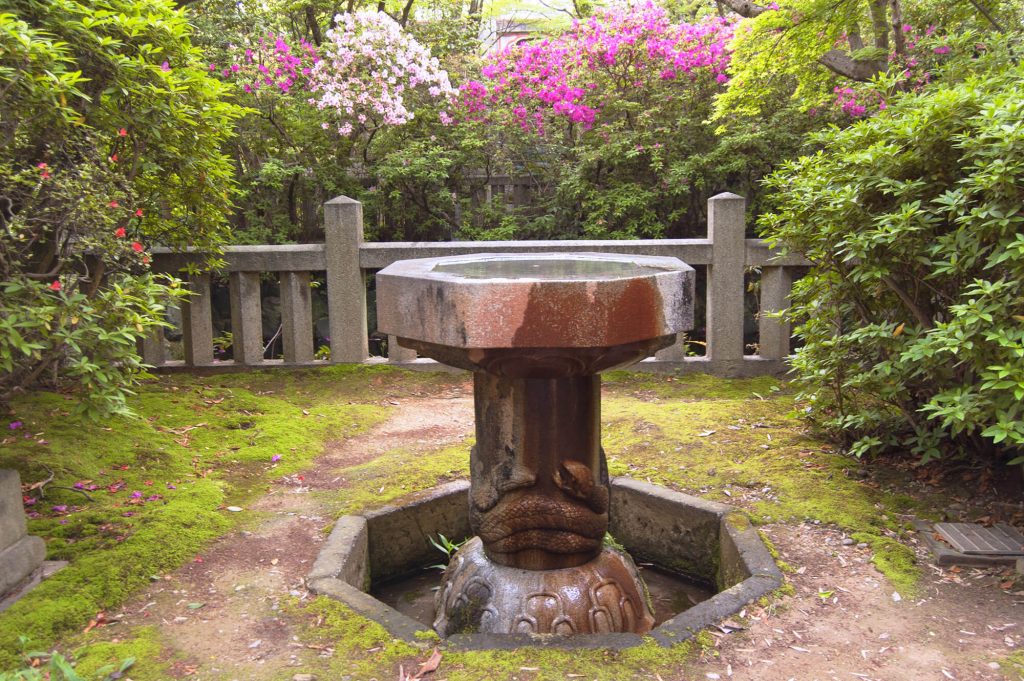
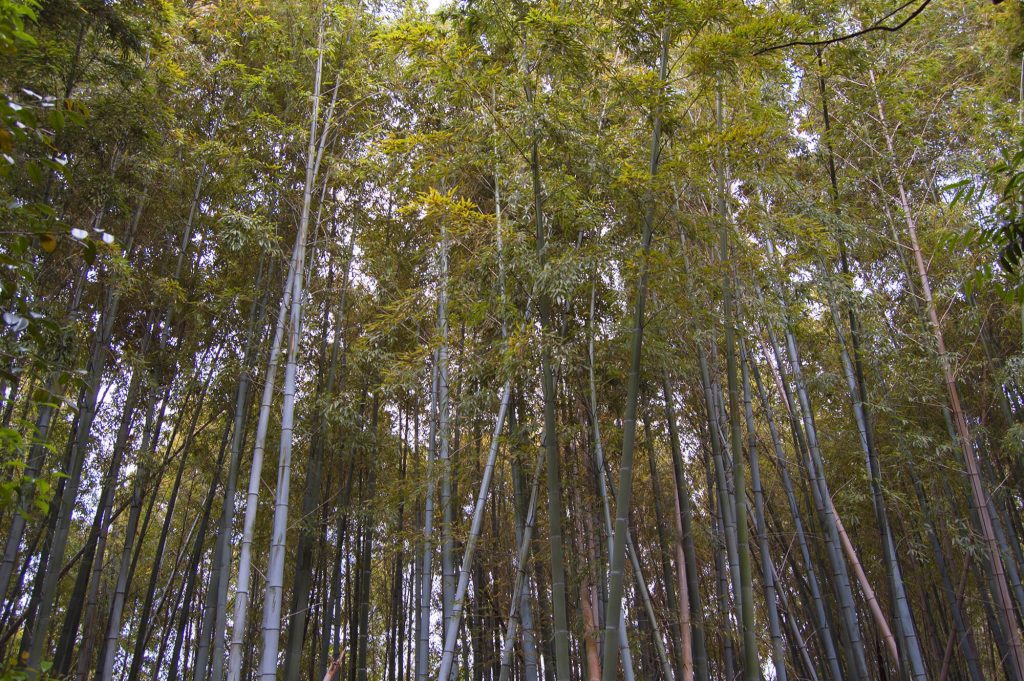
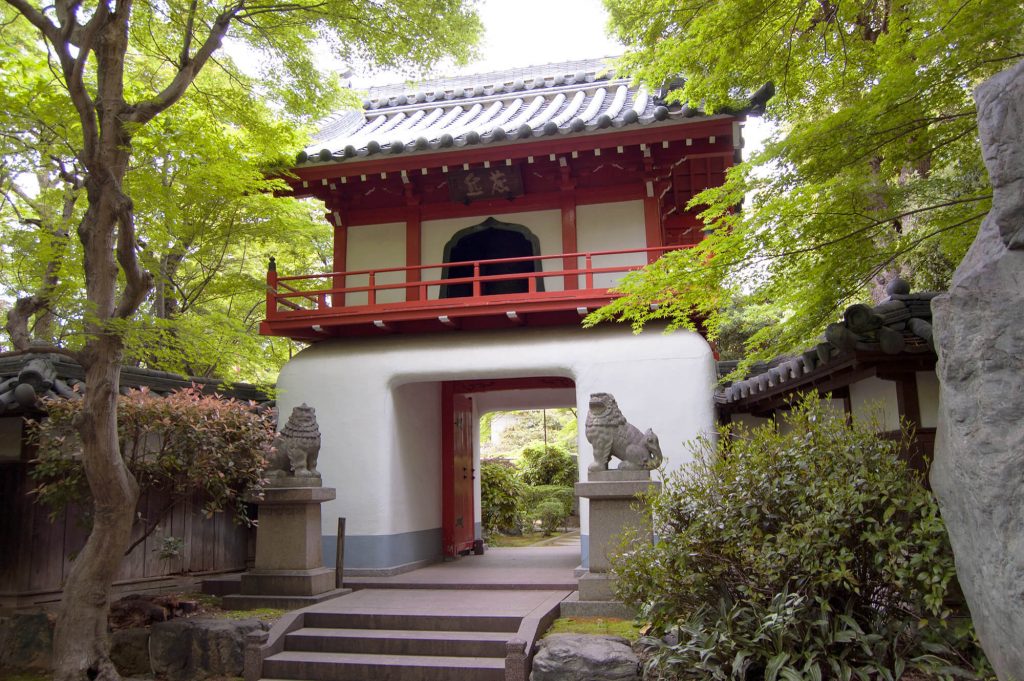
Main Temple Hall
At the end of the long walk we reach the main hall of the temple.
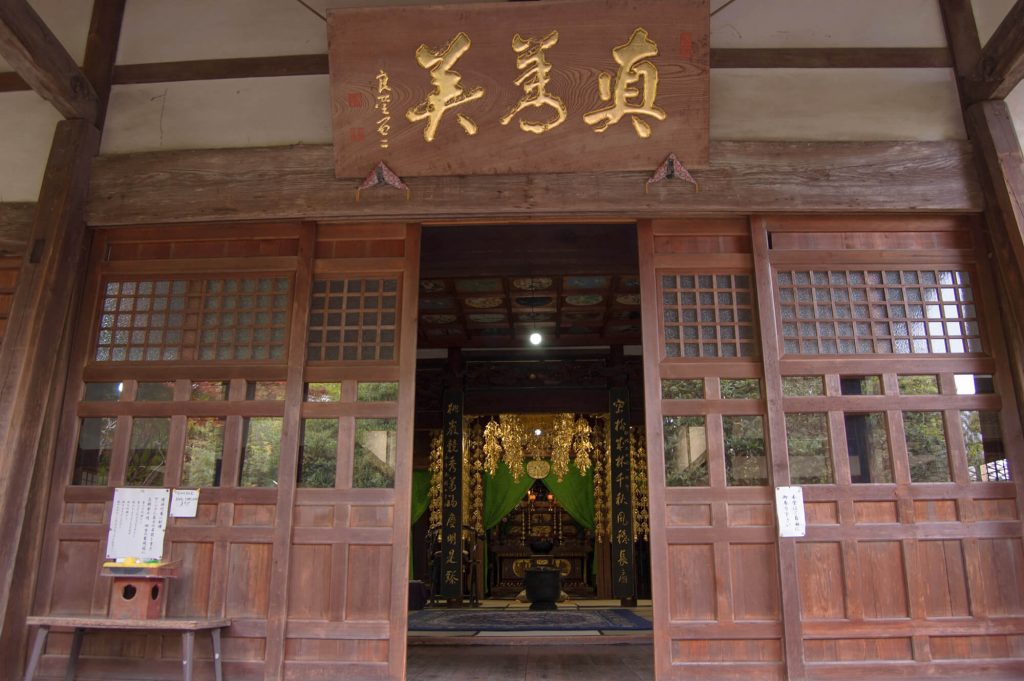
Inside, we find a Chinese-style altar with golden decorations around it. The wooden roof is richly decorated with Japanese images.
Here, we also find a replica of the great Buddha and a block of wood (actually it is a fish). It is believed that touching one of the hands will erase any previous sins you may have committed.
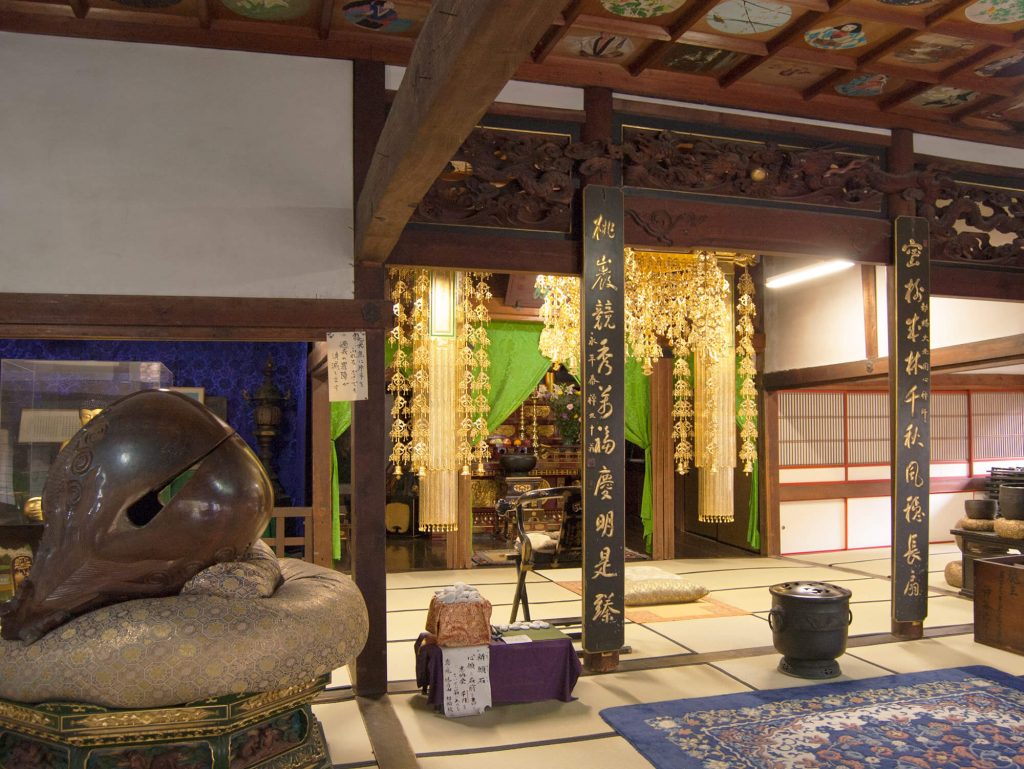
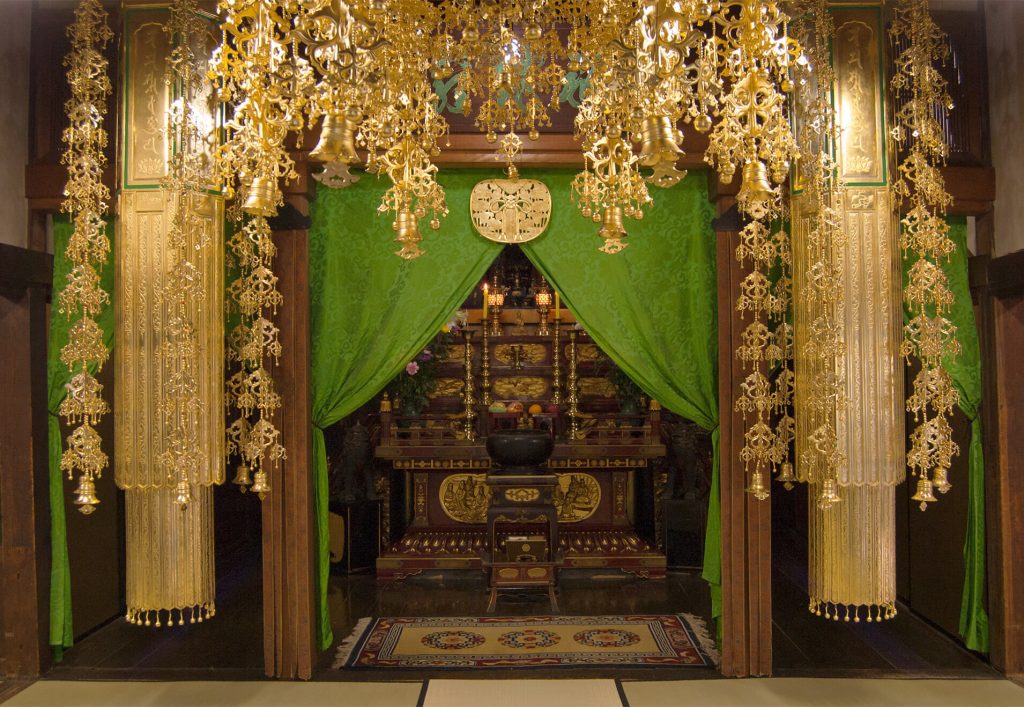
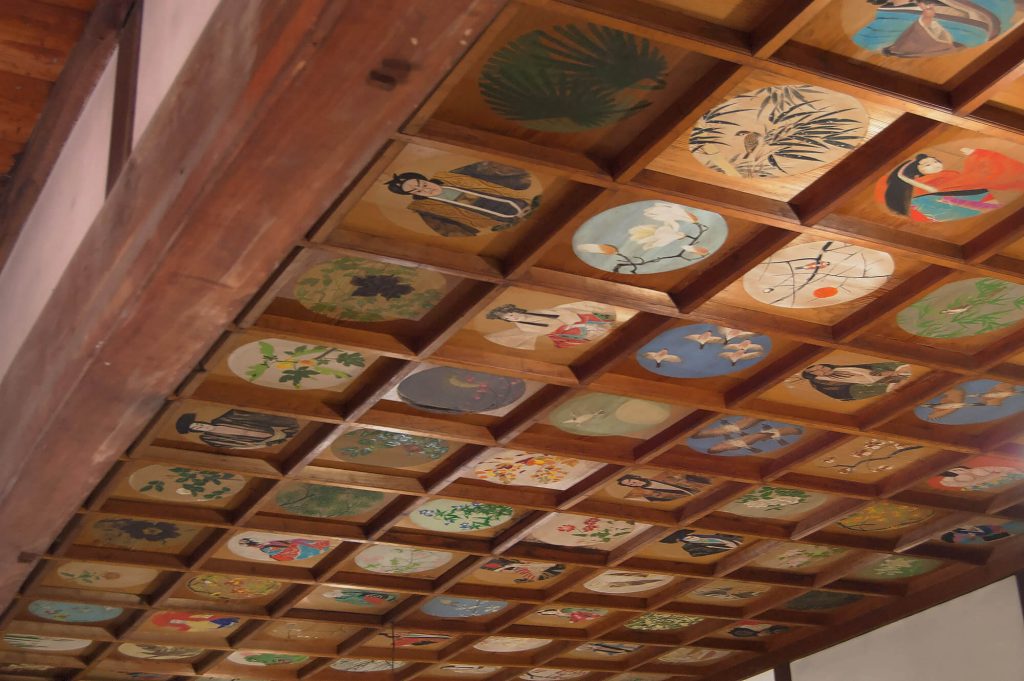
During the festival of Benzaiten (name of the Goddess Saraswati in Japanese) that is celebrated on May 7 and 8, the image of the sleeping Goddess is showed inside the hall.
Before reaching the Buddha we passed the side of a small cemetery. There is even an altar for pets!
The big green Buddha
After descending some stone stairs, on the left there is the garden surrounded by trees where the statue of the Buddha lies. Known as “The Great Buddha of Nagoya”, it was placed in 1987 and painted green and with gold leaves on the eyes, mouth and ears, in 2006.
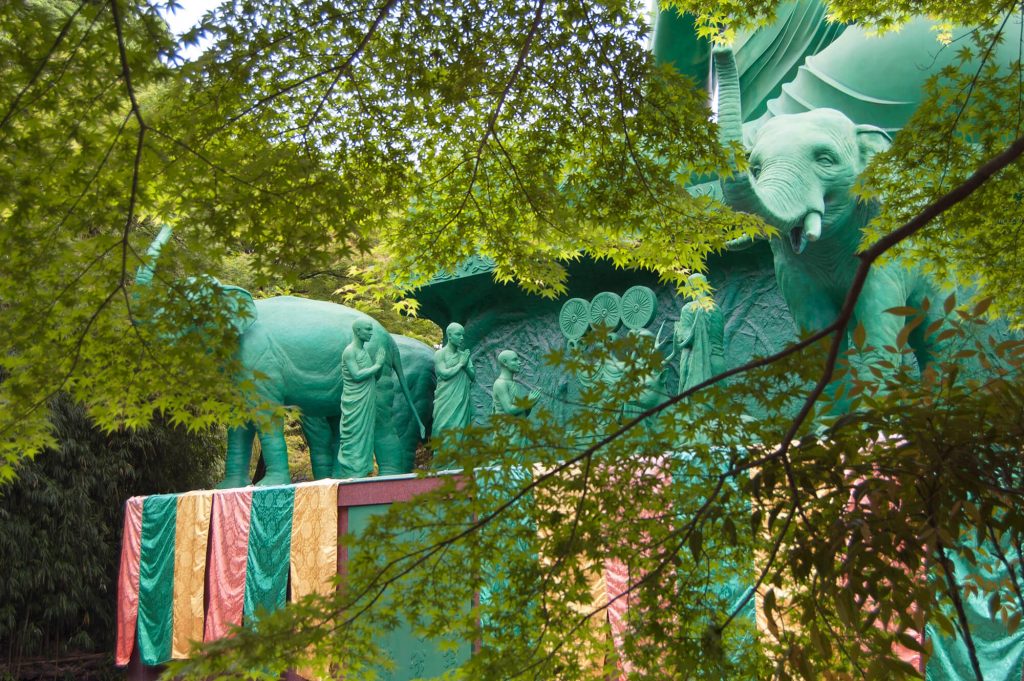
The statue has a height of more than 10 meters, seated and with closed eyes, in one of its palms it has inscribed the symbol of the Ashoka chakra (it means “to turn the wheel of justice”).
The pedestal is decorated with Buddhist icons and statues of saints, elephants, deer, a peacock …
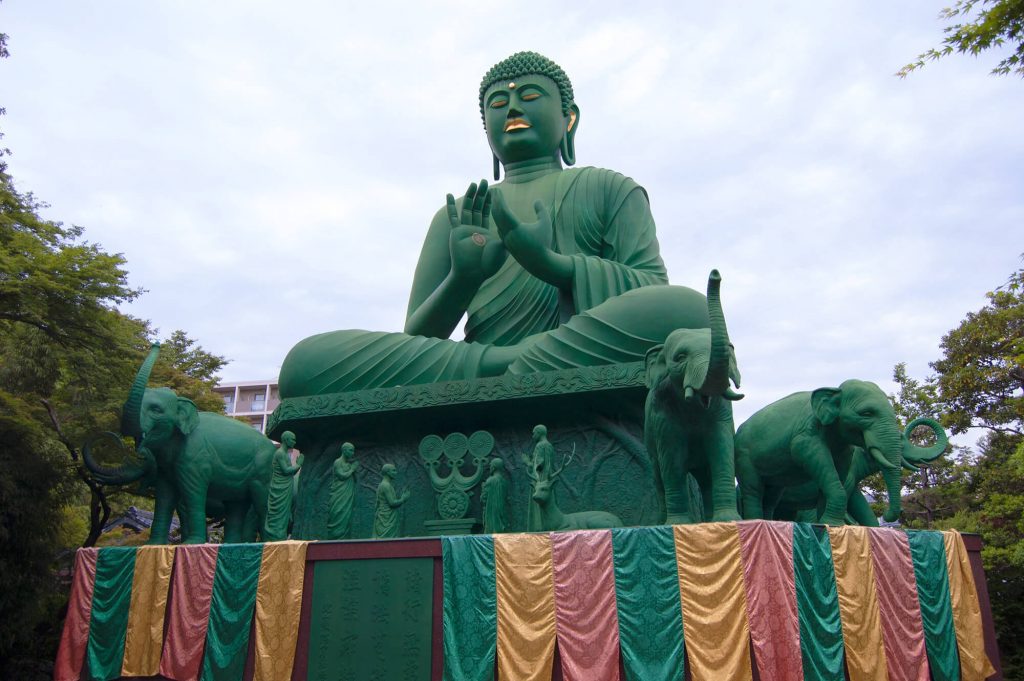
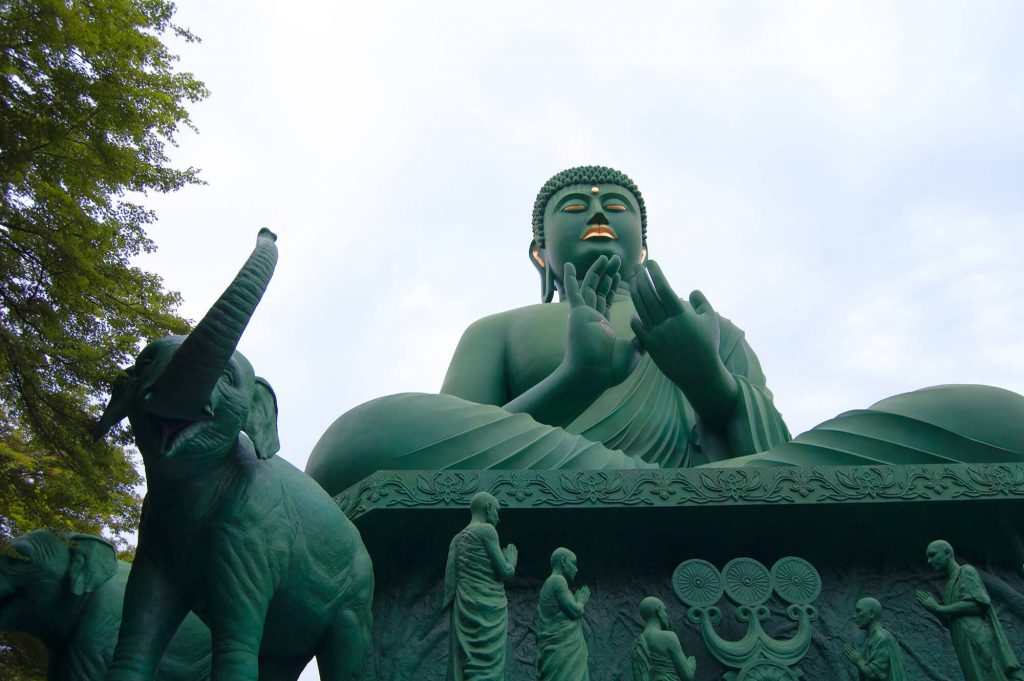
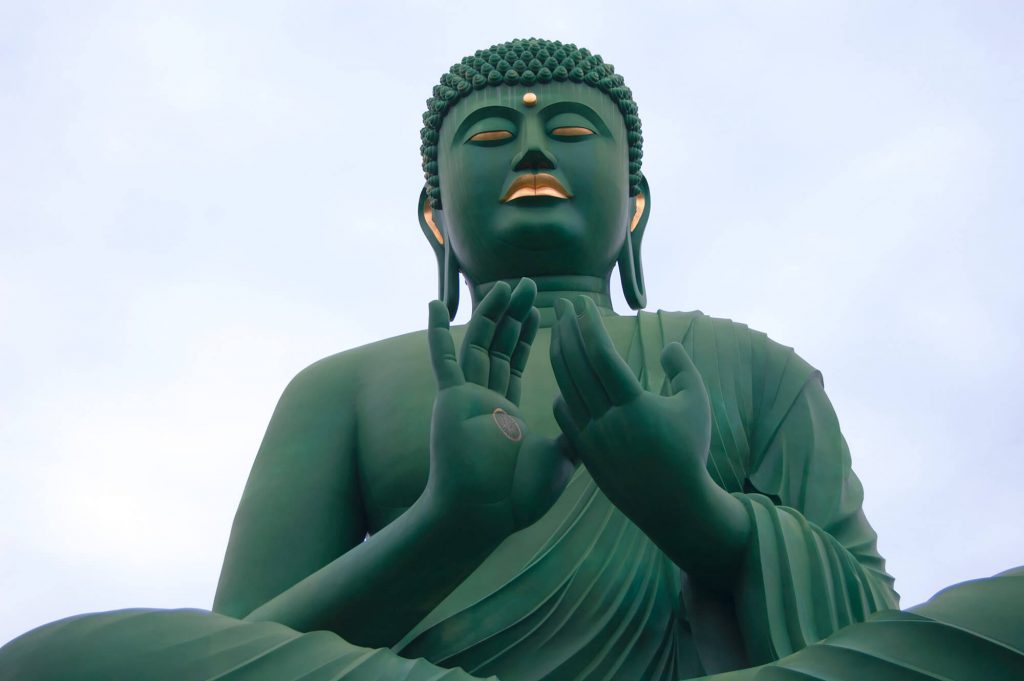
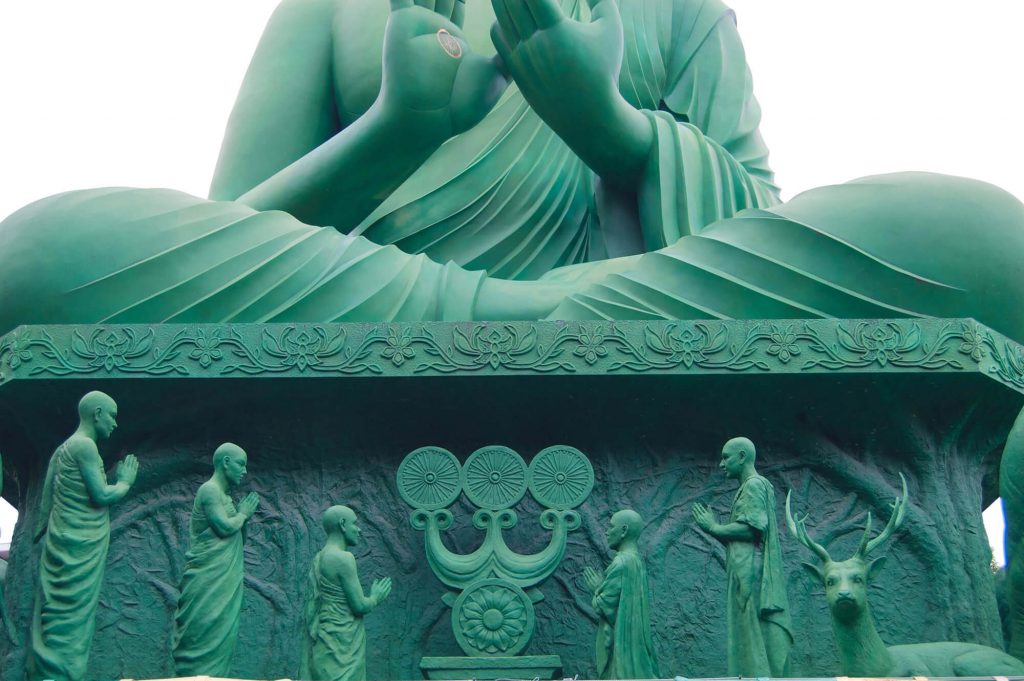
In front of the big Buddha statue, there is a left bronze palm of Buddha with the same symbol, of the Ashoka chakra.
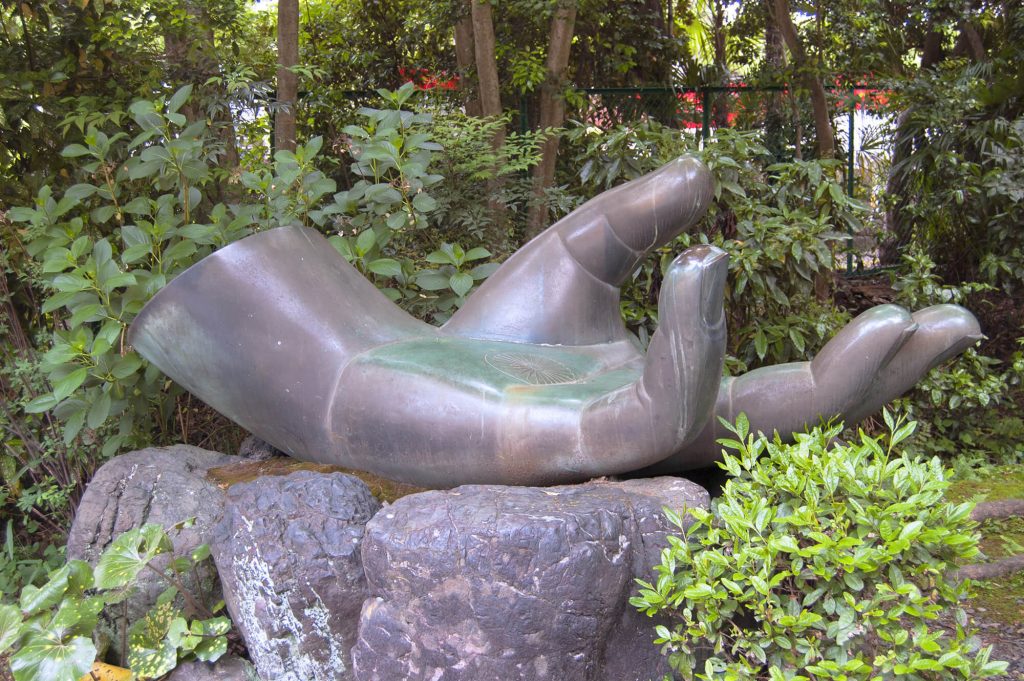
The whole place is really silent and, the darkness of the woods and the song of the birds, gives the sensation of being in a small forest.
Although many tourists visit Nagoya every day, most people miss this place since it is not included in any tourist itinerary of the city. It’s still non-touristy, so I recommend you make a stop here!
Travel tips
Make sure you bring with you an anti-mosquito repellent.
Getting Here
By subway.
Take the Meijo or Higashiyama Nagoya subway lines.
From the exit number 6 you will arrive to the temple within 3 minutes walk.
General Information
Address
2-16 Yotsuya-dori, Chikusa-ku, Nagoya
Opening Hours
9:00-17:30
Admission Prices
Free

